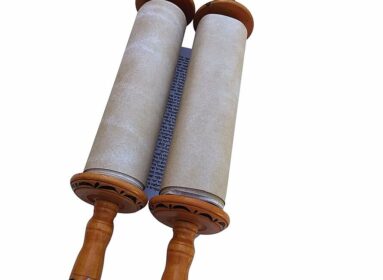Shavuot – the Festival of Weeks — is the second of the three major festivals with both historical and agricultural significance (the other two are Passover and Sukkot). Agriculturally, it commemorates the time when the first fruits were harvested and brought to the Temple, and is known as Hag ha-Bikkurim (the Festival of the First Fruits). Historically, it celebrates the giving of the Torah at Mount Sinai, and is also known as Hag Matan Torateinu (the Festival of the Giving of Our Torah). Shavuot is celebrated for one day in Israel – the 6th day of the month of Sivan; and two days in the Diaspora – the 6th and 7th days of Sivan.
The period from Passover to Shavuot is a time of great anticipation. We count each of the days from the second day of Passover to the day before Shavuot, 49 days or seven full weeks, hence the name of the festival. The counting reminds us of the important connection between Passover and Shavuot: Passover freed us physically from bondage, but the giving of the Torah on Shavuot redeemed us spiritually from our bondage to idolatry and immorality.
It is noteworthy that the holiday is called the time of the giving of the Torah, rather than the time of the receiving of the Torah. The sages point out that we are constantly in the process of receiving the Torah, that we receive it every day, but it was first given at this time. Thus it is the giving, not the receiving, that makes this holiday significant.
The book of Ruth is read on Shavuot, and it is customary to stay up the entire first night of Shavuot and study Torah, then pray as early as possible in the morning. It is also customary to eat a dairy meal at least once during Shavuot. There are varying opinions as to why this is done. Some say it is a reminder of the promise regarding the land of Israel, a land flowing with “milk and honey.” Others say it is because our ancestors had just received the Torah (and the dietary laws therein), and did not have both meat and dairy dishes available.
Information for this article was culled from Judaism 101, www.jewfaq.org.
SHARE








 Southern New England Jewish Ledger
Southern New England Jewish Ledger











